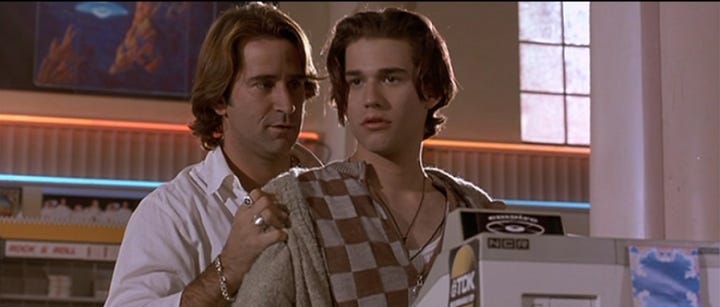50 STATES 50 MOVIES: DELAWARE
Youths Of A Forgotten Generation Struggle To Find Meaning In A Forgotten State
Empire Records


I once had a short relationship with a guy from Delaware.
Jeff once described his home state as “a county masquerading as a state.” Living in Delaware, he said, was like living in a suburban-collar county of Philadelphia or a forgotten backwater of Maryland or New Jersey. Because it doesn’t serve any major city in the megalopolis, or direct…
Keep reading with a 7-day free trial
Subscribe to Nick Rafter Writes to keep reading this post and get 7 days of free access to the full post archives.




